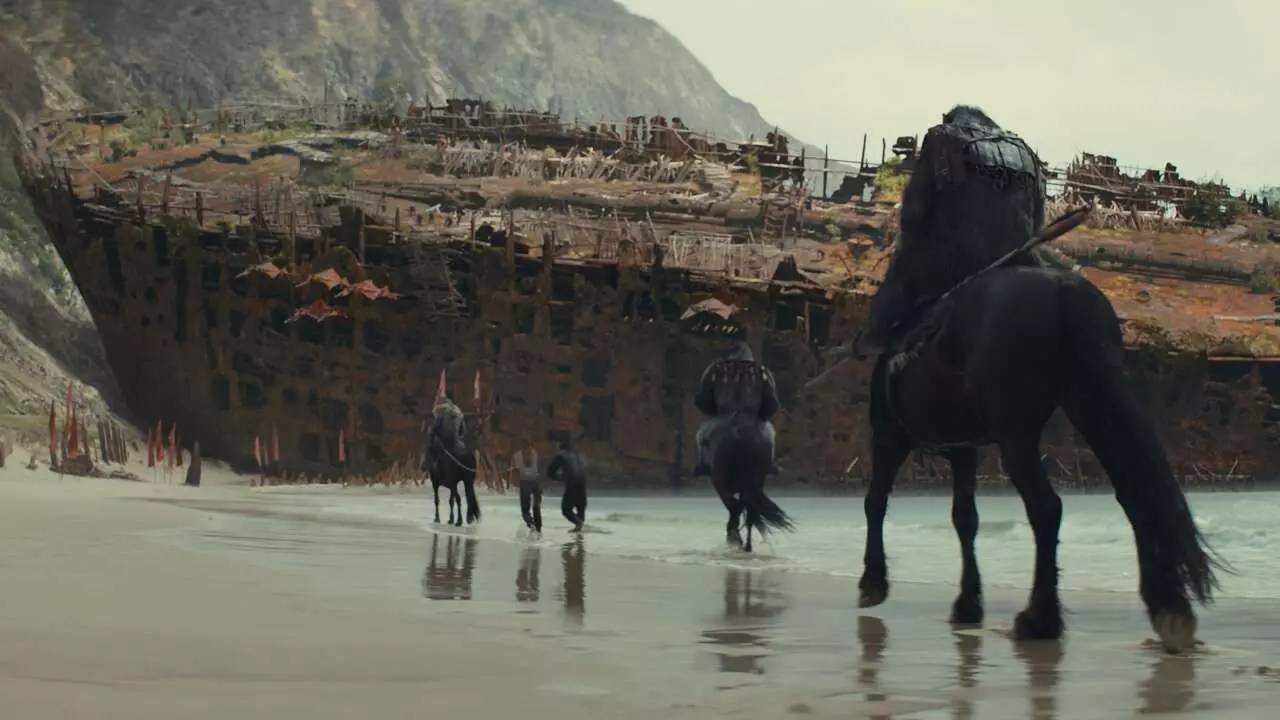With the release of Kingdom of the Planet of the Apes, the modern iteration of the long-running sci-fi franchise has reached double-digit movies. This latest installment takes a significant leap forward in time, bringing us closer to the original film’s timeline. Director Wes Ball sees this move as a stepping stone towards closing the franchise at the same point it began, mirroring the iconic moment of Charlton Heston crash landing on the future Earth. Despite this ambitious goal, the film marks the beginning of a new era for the apes, with the previous movies laying the foundation for the current narrative.
Ball’s vision for Kingdom of the Planet of the Apes involved exploring the diverse civilizations that have developed among different ape groups. The protagonists, unaware of Caesar’s legacy, find themselves in conflict with those who venerate the legendary leader. This dynamic sets the stage for a rich storytelling canvas, with each group offering a unique perspective on the evolving ape society. As Ball delves into the intricacies of these factions, he plants seeds for future narratives while staying true to the overarching theme of the series.
While Kingdom sets the stage for a potential return to the events of the original 1968 film, Ball acknowledges that such a goal is still a distant prospect. The idea of gradually building towards the iconic moment of Heston’s arrival adds an exciting layer of anticipation to the franchise. However, Ball remains grounded in the reality that there are many stories to tell before reaching that point. His aspiration to honor the legacy of the original film without simply remaking it reflects a nuanced approach to franchise development.
In Kingdom of the Planet of the Apes, viewers witness the early stages of ape civilization, with characters like Raka and Proximus Caesar adopting elements of human culture. The gradual transition towards apes wearing clothes signals a significant shift in their development, bringing them closer to the sophisticated society depicted in the original film. This visual evolution serves as a subtle foreshadowing of the franchise’s trajectory, hinting at the transformative journey the apes are set to embark on.
The Uncertain Future
As Ball navigates the complexities of expanding the Planet of the Apes universe, the question of whether the franchise will ultimately lead back to its origins remains unanswered. The potential to explore new narratives while paying homage to the iconic moments of the past presents a challenging yet rewarding creative endeavor. Ball’s willingness to embrace the unknown and let the story unfold organically reflects a respect for the series’ legacy and a dedication to crafting a compelling cinematic experience.


Leave a Reply